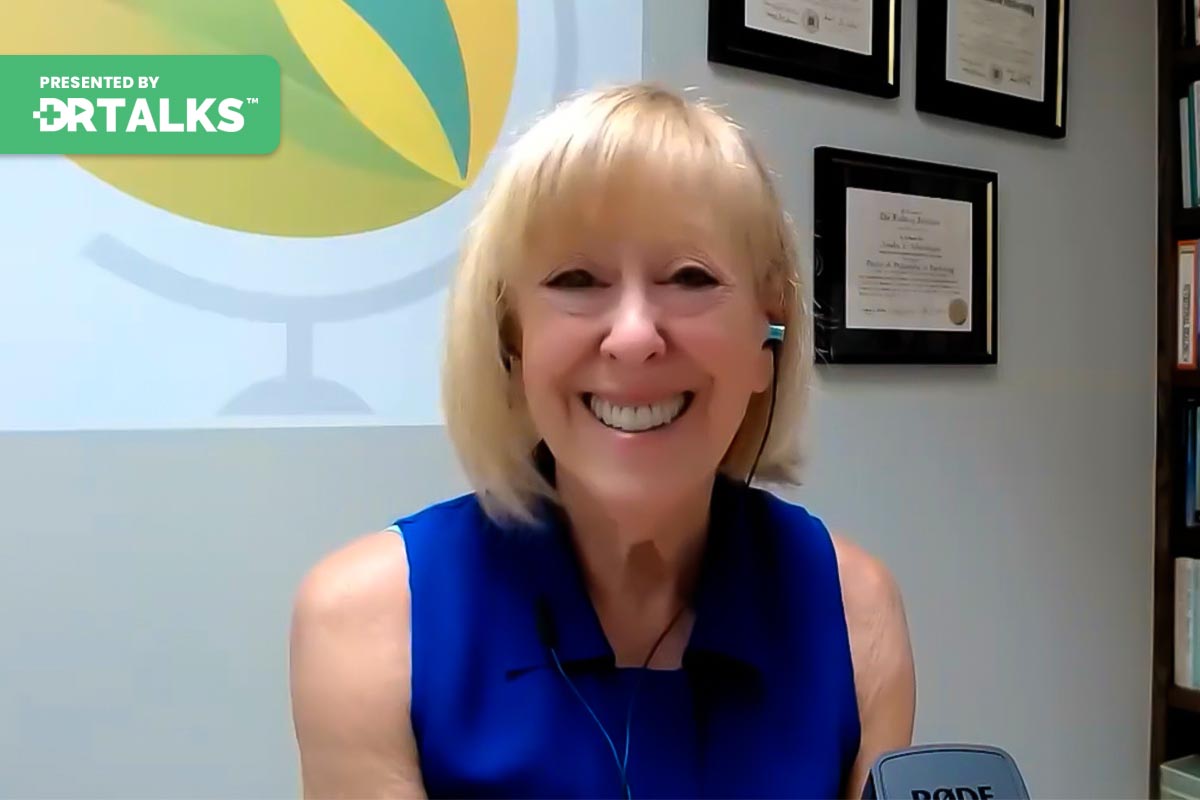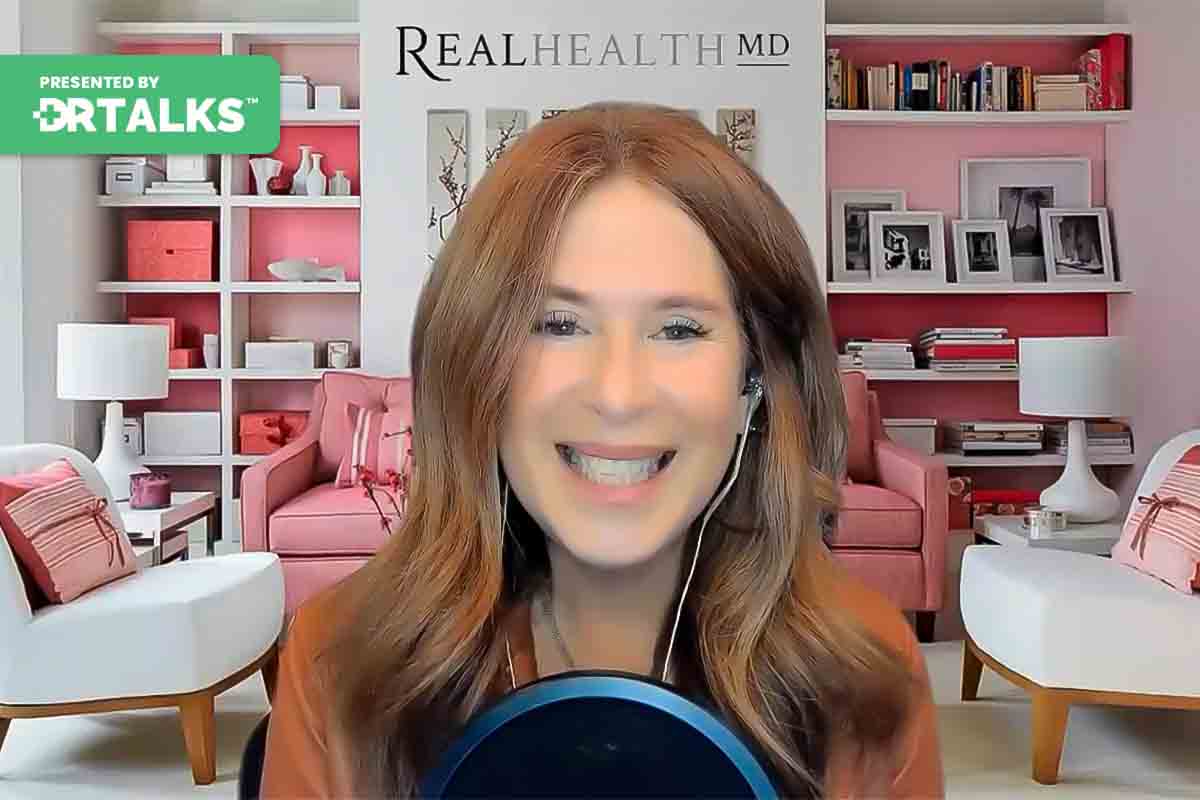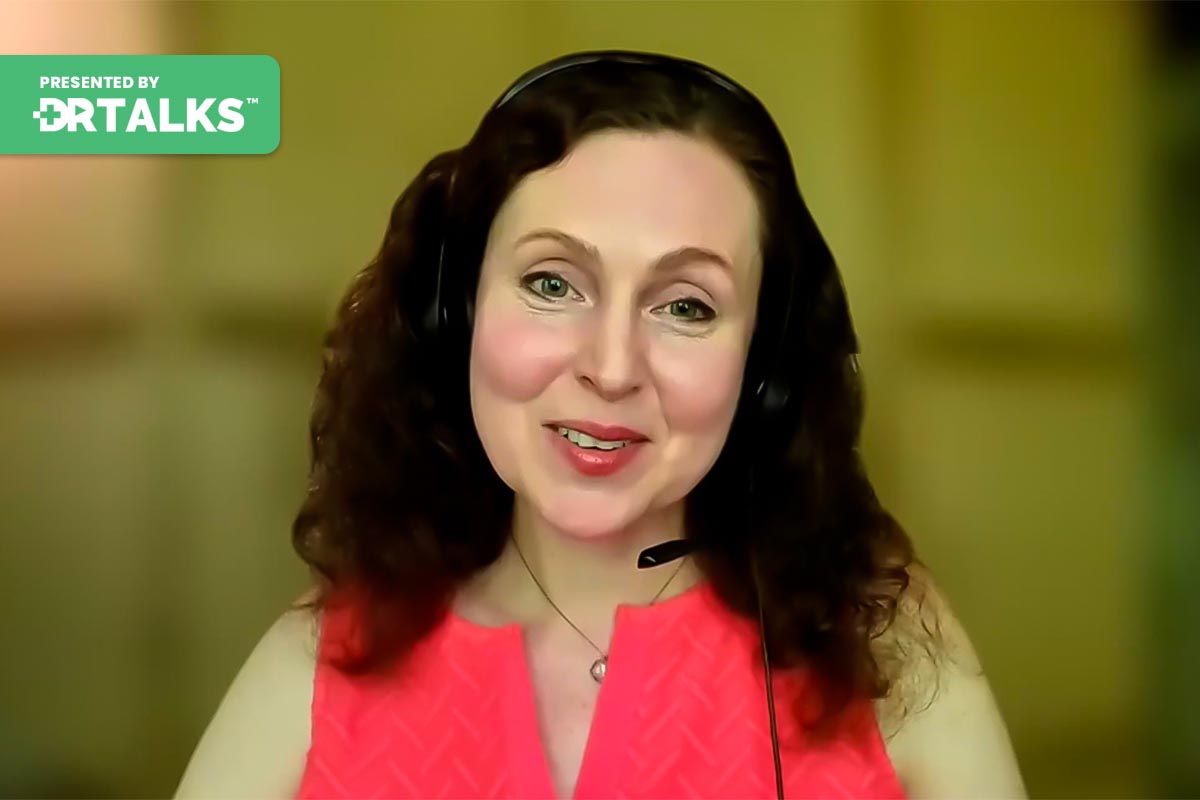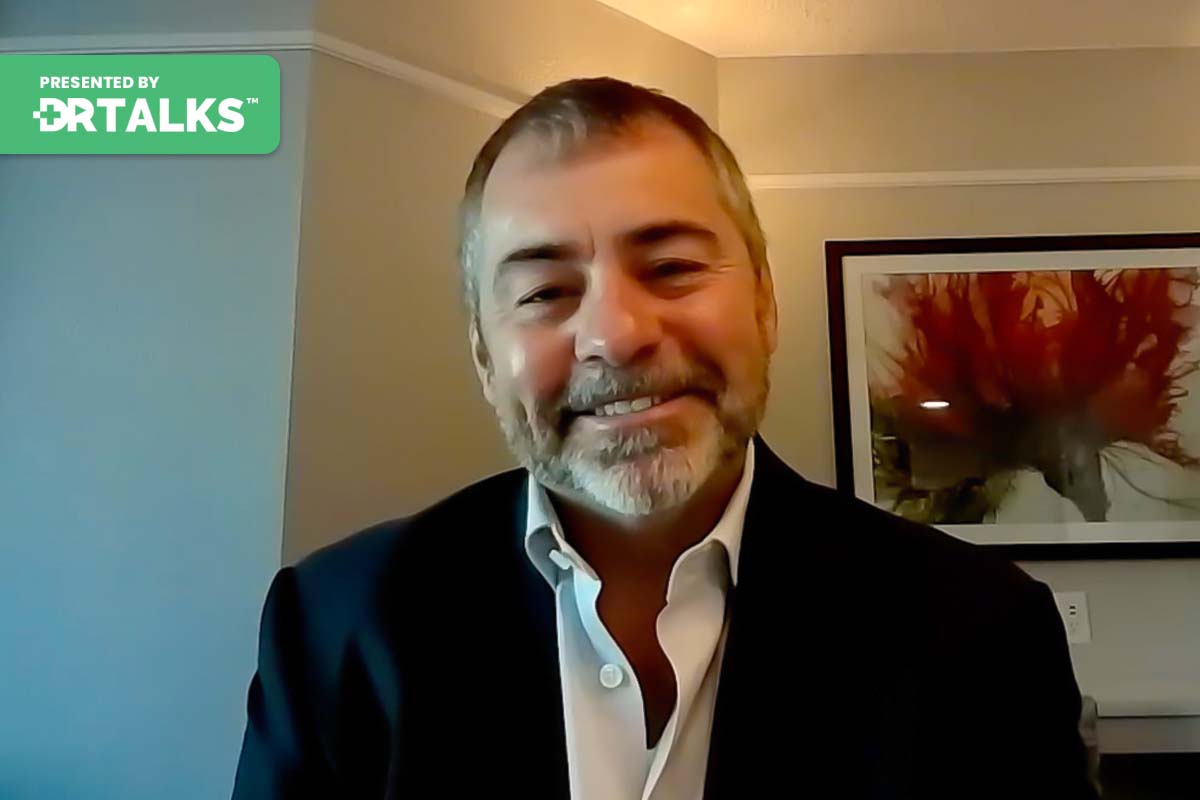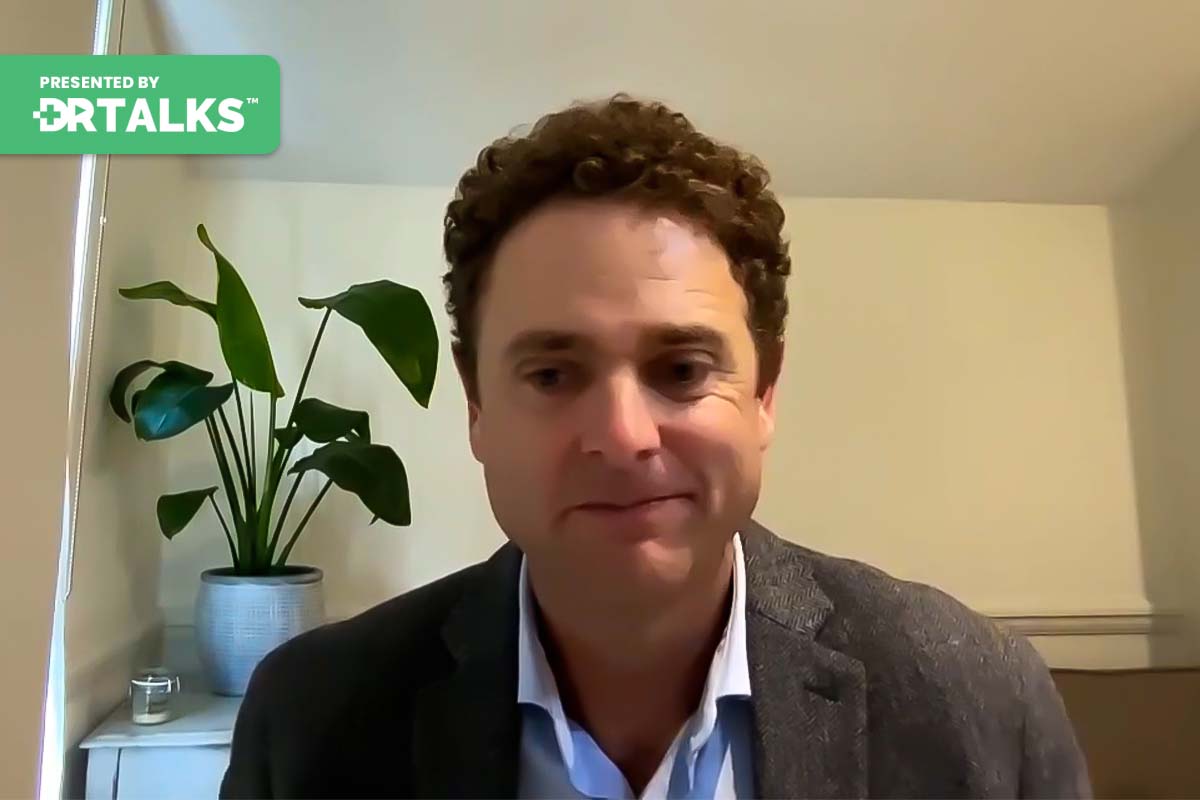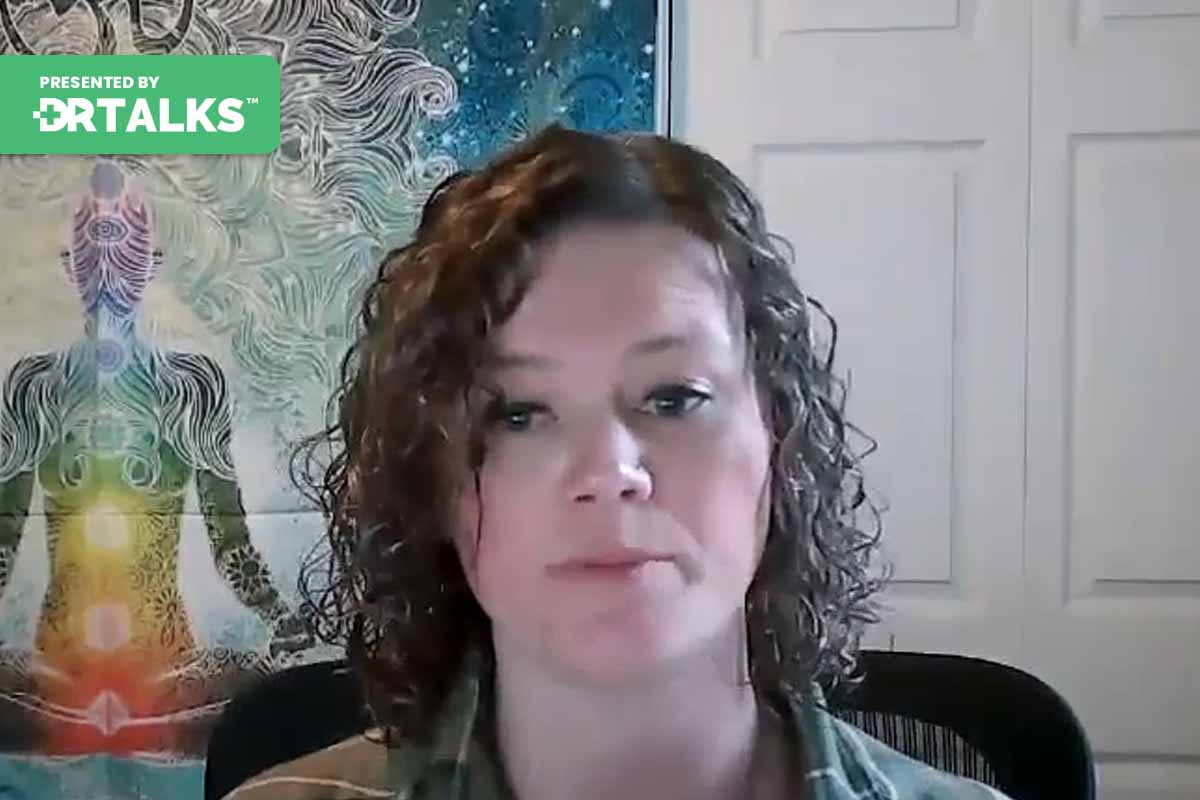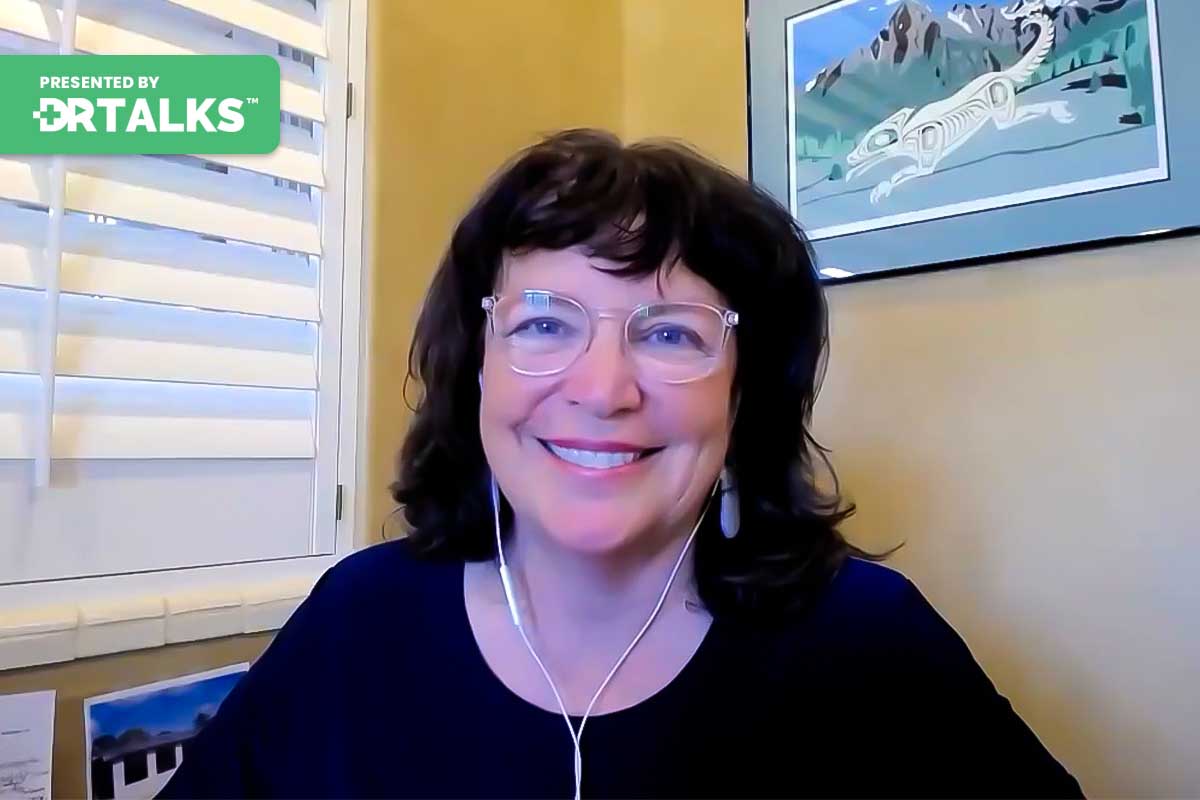Join the discussion below
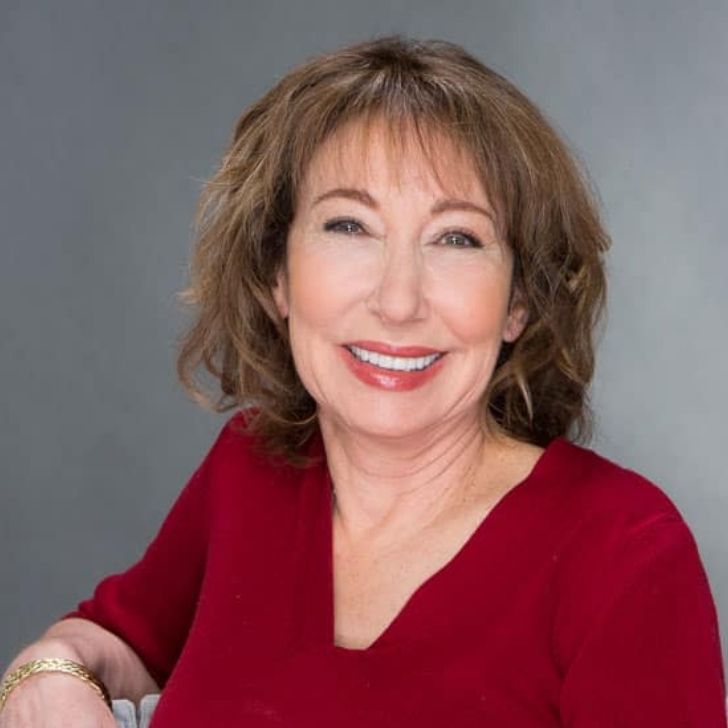
Felice Gersh, MD is a multi-award winning physician with dual board certifications in OB-GYN and Integrative Medicine. She is the founder and director of the Integrative Medical Group of Irvine, a practice that provides comprehensive health care for women by combining the best evidence-based therapies from conventional, naturopathic, and holistic... Read More
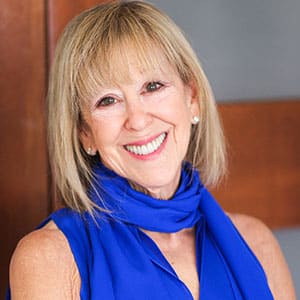
Dr. Sandra Scheinbaum trains people to become Functional Medicine health coaches and helps practitioners find coaches for their practices because she believes that growing the health coaching profession will be the solution to combating chronic disease and lowering healthcare costs. As founder and CEO of the Functional Medicine Coaching Academy,... Read More
- Appreciate the role of health coaches as allies, accountability partners, and guides on your healing journey
- Learn how health coaches can ease crucial lifestyle changes that improve your health
- Discover the emotional support and obstacle-overcoming strategies that health coaches provide
- This video is part of the PCOS SOS Summit
Related Topics
Change, Client Centered, Functional Medicine, Healing, Health Coach, Health Coaching, Humanistic Therapy Psychology, Institute For Functional Medicine, Learning Disability, Mind Body Medicine, PCOS, Polycystic Ovary Syndrome, Private Practice, Psychology, Realistic Timeline, Role, Small Steps, Standard American Diet, Stressful, Structured Approach, Support, Unconditional Positive Regard, Weight Loss, Weight WatchersFelice Gersh, MD
Welcome to this episode of the PCOS SOS Summit. I’m your host, Dr. Felice Gersh. I’m so pleased to have as my guest for this segment Dr. Sandra Scheinbaum. She is a multitalented woman I have admired for many years. She has so many accomplishments. I’m going to have her go over a few of them. But first, let me just introduce you to this. Really? I think she’s a Wonder Woman. Hi, Sandra. Welcome.
Sandra Scheinbaum, PhD
Oh, lovely. Great to be here.
Felice Gersh, MD
We first met, and I learned that you became an were the founder and CEO of the Functional Medicine Coaching Academy, which is so critically important, especially when you’re dealing as I do so much of my career with PCOS, polycystic ovary syndrome. This is such a complex medical condition that so depends on people like you and all the people you train. But tell me, you know, you started out in psychology and you’ve written all these different books. I believe you were in teaching too earlier. So how did you end up going down this path and found this wonderful company and get into this whole area of health care?
Sandra Scheinbaum, PhD
Well, two things. One is love of learning and also failing at many things. In my early, I’ve read many careers. I started out in elementary education and I remember my student teaching experience back in the were talking the late sixties and we had open classrooms and I did not do so well. So I realized that, oh, I’m not going to make it there. There was an overabundance of teachers at that time. And so I decided I would go into learning disability. I was very intrigued by learning processes and that led to a career as a psychologist. And I was running a very large group practice. I was in partnership with some psychiatrists. And so we encountered some issues with running that practice. And I was very, very stressful. And so I stepped away and started my own private practice, and that led to ultimately founding FMC. And I always said that if that large group practice we were trying to get contracts at that time with HMOs, and if that had been super successful, then I never would have been doing what I did today or if I hadn’t been again, like I would have been an elementary school teacher for many, many years and probably would have been retired by now.
But instead of had a career, I was a health psychologist and so I was always fascinated by mind body medicine. And back in the late seventies, that wasn’t even a term. We didn’t talk about breath work. I was just teaching people how to breathe and self-regulation strategies. And when I was 65, we, we meaning I had an associate with me who is now our co-founder and we were hearing from coaches who had been trained by other health coaching schools that we need to have a coaching program that focuses on functional medicine because I had been trained through the Institute for Functional Medicine. In fact, I was one of the first to get certified and was going back to my love of teaching. And so we founded the school and the rest is history. We have close to 5000 graduates all over the world, and I wake up every day just feeling just so thrilled as I think about all of the people that we’ve trained and the ripple effect, all of the ways that they are helping people live healthier lives.
Felice Gersh, MD
What a life story and journey you’ve had. And of course, it’s ongoing. I know this is very, very active and this has become such a really recognized and critically important field for promoting health. But I’m sure many of our viewers, maybe they’d never even heard of a health coach. So could you sort of tell them, like, what is someone who does health coaching and why it’s so important to her?
Sandra Scheinbaum, PhD
So when people think about a health coach, they think about someone who is going to tell them what to do, like, Oh, I need they’re going to tell me how to eat or they’re going to tell me how to exercise. AIS The process of health coaching is exactly the opposite. Health coaching comes from humanistic therapy psychology, which I studied, and the humanistic way to do psychotherapy is called client centered. And there’s a concept called holding people in unconditional positive regard. It means that wherever the that client wants to go, that’s where the coach goes. And in coaching, we say client, not patient. That’s to differentiate coach from somebody who is a medical practitioner and holds a license. They have patients. Health coaches, in a nutshell, help people change. When change is difficult, they help people go from where they are to where they want to be and how do they do it?
By allowing people the space in that coaching session to have to be thoughtful about what gives them meaning and purpose in their lives. So the coach asks open ended questions: What do you want your health for in life? If you can have your ideal situation, where would you want to be in five years? In ten years? And then they dial back to, okay, let’s partner and let’s see where do you want to start? And it’s always in that individual’s hands. It’s not that, Oh, somebody told me I need to lose weight or I need to eat this way or that way. It is really what they’re choosing to do. That’s why it’s so powerful.
Felice Gersh, MD
That is such a wonderful and strong message. I know that I have patients that come in my practice all the time and they say they went to another physician who said to them, Well, you have PCOS, this is what you do. You should eat less and exercise more. And then they walk out the door and it’s like, What does that mean? What am I supposed to do? I know I should probably do those things, but how do I go about it? I have a family and a busy life, so we’re like, Let’s think about some of these women with PCOS. The majority of them are overweight. Many of them are eating the standard American diet, which, you know, and you can maybe talk a little bit about what that means. So like, where does someone start as a health coach? Like, what do you do when you have someone who says, I know I should do these basic things, but I have no idea how to really work them into my life. Or maybe I’m successful for a week and then I go back to my old ways, like, where do you even start? I mean, this seems like such a challenging job being a health coach.
Sandra Scheinbaum, PhD
Yeah, it is actually one of the most rewarding jobs. The people we hear that over and over again. This lights up my life when? Because what you’re doing is having this relationship with somebody. So where does it start? It starts with a basic relationship, building rapport, having a sense that you feel understood. So somebody may go to a physician. Yeah, they’re told, you know, do you have this condition and eat less and exercise more? And they think there’s something terribly wrong with them. The coach builds rapport, and that is you find what brings them joy in their life. What are the things that they would like to picture themselves being able to do in the future? What does the future look like for them? And then it is asking questions about what they’ve done in the past. So let’s say it has to do with losing weight. Well, have they ever been on diets? What happened did it wasn’t what was successful when you lost weight. What did you do that you found oh this is easy.
I can do it. And they might say, oh, well, I was in Weight Watchers a few years ago. Okay. Then that might lead to they enjoy passing the social or the ability to be in a group to change when other people are changing. So that’s social proof. And so that would be an indication that maybe health coaches work wonderfully in groups and that’s where the community is, the healing. Or perhaps they like Weight Watchers because it was very structured. And so that would again, that person would draw up a plan. So it’s not the coach giving them a plan. They decide, yeah, I really did well with that structure. And so then they would research together what are some approaches to eating? And it starts really small. Maybe they’ve been drinking 6 to 7 Cokes a day and now they said, Yeah, I could cut down to five.
Okay, when are you going to start? How are you going to do it? What? Tell me about your day. What? When would you start to? To cut down what could you substitute to drink instead? Oh, I guess I could drink water. Great. That’s a great choice. And so it’s that kind of conversation where it’s not coming from the coach. They’re not the expert. They’re not saying, I’d like you to drink more water, I’d like you to cut down or stop drinking all that coke. The client arrives at that decision, and often it’s breaking down into really tiny steps. And then the coach might say, okay, how can I support you? And then at the end of the session say, okay, you’ve committed to me cutting down from 7 to 5 Cokes a day. Okay, let’s talk about it next week. I’m going to ask you about how that went. So that’s a little bit about what the process of coaching might look like.
Felice Gersh, MD
So I think there’s so much that just was said. So for one thing is you don’t expect things to change overnight. I know so many people in the US, I’m sure worldwide they want that magic pill. The one thing that they can do usually without effort, right? That they can just swallow and it changes everything. So when you meet with people and you train your coaches, do you sort of try to create a rational, realistic timeline for how these changes can occur? Because people could get so disappointed, I guess, if they are looking just at the scale and they don’t see the little line moving as much as they’d like. So do you work with the client then to try to establish like, well, let’s realistically look at this, you know, we’re going to take steps, you know, sometimes baby steps, maybe occasionally a giant, giant leap. But so in terms of setting a timeline, how does that sort of work for a patient? So that I should say clients that I’m used to patient with your clients so that they can sort of stay optimistic and be realistic.
Sandra Scheinbaum, PhD
Yes. So it is all in their hands. It’s like a dance and the client is the lead. They are taking the lead. The coach follows. So the coach would ask, it’s all in the questioning. So the coach would ask, when would you like, when do you think you can accomplish that? So they’re setting the timeline and then it’s a question, well, what would happen? What’s happened in the past when you’ve gone on a diet and it was they might say, well, I was, you know, did well for three weeks. And then I went off the wagon. And so this might be a pattern. And so the slower you go, the more likely it is that you will be successful. Many coaches work in medical practices, so they might be your health coach and you’ve laid out a treatment plan and that might entail a timeline.
And then the coach is then with that individual and like, well, what are your thoughts? What obstacles might come up? And so the timeline is going to take into account obstacles, maybe nine times out of ten. It’s family that can get in a way. So that would be a discussion about how they can get the family on board. Friends, we tend to eat the same way our friends do, and so there would be conversations about how to handle situations like that, say there in a restaurant for example. So the coach is the one who’s helping the client with that timeline and often they get so motivated. So in the example I gave, they may come back next week and say, You know what I realized, take drinking water is okay. Maybe I put some flavoring in it and I, this is okay. I can do this. Maybe it’s sparkling water and I didn’t even, you know, maybe I’m down to just one coke and now I think I can go more. So they’re setting the timeline. They’re saying how fast or how slowly. So let’s say they didn’t do well. Let’s say they were continue to drink the same amount that week.
Okay. So then it would be a discussion about what are they telling themselves they should versus I desire and that would be perhaps in education. May I make a suggestion? You know, you really want to lose weight badly. You’ve had, you know, your doctor told you about PCP. May I make a suggestion or may I offer some education about the link between Coke and what it does with the blood sugar? And they may explain. So the coach has that role as well as an educator because it can be overwhelming and people might not get the connection between PCOS and everything that they are putting in their body.
Felice Gersh, MD
Absolutely. So a health coach has so many different facets of function now that with their clients, one of the things that comes up all the time among my PCOS patients is and this goes back to your psychology background is stress eating. You know, they’re not hungry, but they don’t really have these coping mechanisms for when they get stressed out and food becomes sort of like their drug. So what do you do when someone says, you know, like, I could be so good and then I get to this point, I just feel really stressed and then like, I’ll eat a bag of chips or I’ll go crazy and I’ll raid the refrigerator and eat whatever I find or the eat a tub of ice cream. So do you work with clients? I’m sure you must. But in terms of how to deal with emotional eating.
Sandra Scheinbaum, PhD
Yes, and that is a big one. So one of the things that makes a coaching relationship so powerful is that the coach, unlike the psychiatrists in Freudian years and years ago, wears a blank screen. But the coach may say to that person, Yeah, you know, I understand I was there. You know, I and normalize it so that it would be one of the ways and particularly if it’s a group where the other members would say, yeah, I do that too. So they feel like they’re not alone. And then they would come up with a plan again. It doesn’t come from the coach. Has there ever been a time when you were super stressed out and you didn’t reach for food and you did something else instead? And they might say, Oh yeah. Like I once went for a walk, or I got on the phone with my sister and we talked it out, and so that would be a plan of action. So for the next time and you rehearse it, there’s something called stress inoculation. It’s a theory that comes from Donald Brown back in the day, way, way, way back. We’re talking about stress inoculation. The idea is you picture the stressful situation. So maybe every time you have an encounter with a particular individual at work, you leave that feeling stressed.
And so you picture it. So you imagine it happening, and then you imagine yourself dealing with it in a different way. So what you’re actually doing is rehearsing this like you’re rehearsing for a play, you’re rehearsing the next time I can do it differently and then you may catch yourself. Maybe you start to get upset, and then you catch yourself and you think, a different way I can change this. And so that would be one of the ways that you can address stress differently. And then the same thing you can picture getting really, really upset and then have a plan, almost like a menu of activities. Well, I could take a walk every time I take a walk. We know stress that this big a stress reliever can be moving. And so planning something that is really enjoyable can be helpful. And usually if there is a social component as well and then digging into the actual process of eating. So I used to teach courses in the psychology of eating and why are you approaching a food? You really think about that? And often it’s mindless eating. So eating that whole bag of chips, you’re not aware. And so plugging into your senses, being very aware of looking at the food, smelling it and tasting it and then you make the decision, Do I want to continue or not? And I always used to tell people, but I was practicing as a psychologist and we worked a lot on emotional eating issues. Any time you make that decision to stop is okay, so you can be in the middle of grabbing that chip from the bag. Maybe you’ve eaten a lot of them, but you decide to put it down. You celebrate that as a victory instead of feeling demoralized. What’s wrong with me? I can never control my overeating. Any point on that timeline of eating? You can stop. You can make a decision to do something differently and you celebrate that.
Felice Gersh, MD
Well, that’s wonderful because so many people have lost hope. They think that I can’t change. But I think working with a health coach can really help people to make the changes that they’re so desperately wanting to make, but really don’t seem to have the tools at this time to make them. And you mentioned like social issues. Like what about family? Do you ever bring in like family members, especially partners, to help with this process or to help prevent sabotaging this process? As sometimes I’ve seen happen, where a partner says, hey, let’s go out and have some donuts or ice cream cones. And it’s really not really what the client wants to do, but they go along with it because they don’t want to create, you know, friction between themselves and their partner.
Sandra Scheinbaum, PhD
Oh, absolutely. In fact, there was a study that was recently published. It was a randomized controlled trial, and they were looking at patients with type two diabetes and instead of just giving them the coaching, that was a dyad them and a family member. And so very, very successful in impacting those biomarkers for type two diabetes like hemoglobin, A-1 C, for example. And it’s very important to have family on board and to rehearse situations where you’re going to be with family and they’re going to be, Oh, I made it just for you. And I don’t understand why you’re eating this way. And often people will sabotage you often because it’s a reflection on their issues. So they kind of feel like, Oh, everybody is eating the same way I am, or they’re engaging in the same kinds of behaviors, like with drinking.
And if somebody says No, then that’s often they perceive that as a reflection back. Like they’re now feeling badly. But oh, you know, I’m drinking and there are many levels to this. So I think that it is important the coach can help to have tell people develop a plan. And again the plan doesn’t come from the coach. It comes from that individual to say, okay, this is how I’m going to handle my husband, my, my friend, whoever it might be. And particularly if it is family. I was having dinner with some friends the other night and everyone was feel that it was a great meal and my husband said, Oh, there’s a great ice cream place just down the line, let’s go. I’ll have ice cream. And I could tell the other couple like they didn’t really want, but they went along with it to be nice and everybody got ice cream. And for me, I don’t eat dairy and I don’t eat refined sugar. So I said, Well, what’s wrong with you? Like, Oh my gosh, or that must take some willpower. And they felt awkward eating it in front of me. And so the situation had so many levels of thoughts and feelings around it.
Felice Gersh, MD
Yes, it is. It is very complex. And in terms of like let’s go out and do something fun. Well, when holidays come up and so on, sometimes people just throw caution to the wind and they let go of all their plans and all their well-thought out, you know, strategies. So do you work and help your coaches to work to help people deal with holidays? Because it seems like every time you turn around there’s another special event or a holiday. And then if you constantly go off your plan, you’re going to sort of self-sabotage. It would seem, at very regular, frequent intervals.
Sandra Scheinbaum, PhD
Yes, it’s a big part of coaching, preparing for events like this. And it’s also important to emphasize that we’re not robots. In other words, we’re not this mechanical being that 100%, we can do that. We’re human. And so we can aim for we have an intention. So I have an intention when I go to this holiday party that I am not going to sample anything on the buffet, but you may find you’re doing it. And then how do you deal with the thought? I screwed up. I messed up. I’ll never be able to conquer this. What’s wrong with me? And a coach helps people to normalize that and okay, how are you going to move forward? So it is like behavior is not like a straight line. I always say it’s like a trending. You know, you’re charting something like stocks and you have times when you’re going to do really well and times when you’re going to have a dip. It’s how fast you recover from that. So let’s say you go to that. How a party, you have a piece of cake. Okay. Is that going to turn into the next day and the day after?
And usually the more stressed out you are about what happened, you will likely to succumb the next day or the following day. So it’s how fast can you recognize that? Okay. So I made it, I enjoyed it. And now, you know, that’s it. And often times restricted eating can do really well with that, where you can say, okay, now my window is closed. So the coach has that conversation to help people. They’re making that decision like, okay, I can have control over my thoughts, over my interpretation of my actions or the actions of others. And that’s very, very powerful.
Felice Gersh, MD
I would say so. And to have to help your clients to stop beating themselves up, you know, when they have one bad moment or multiple even bad days. Right, that you can recover and to have strategies to recover from, you know, well, when you just go off the wagon and start doing things you know, you shouldn’t do. And one of the things that you mentioned, I know that your coaching academy is very affiliated with the Institute for a functional Medicine. And I’m sure a lot of the viewers out there, maybe they’ve never heard of functional medicine. And that was something obviously that was a personal choice of yours to align with functional medicine. So maybe you could define what functional medicine is and why people should care or even want to be like looking for someone who knows how to do functional medicine.
Sandra Scheinbaum, PhD
Sure. So we are a collaboration with the Institute for Functional Medicine and what is functional medicine? So back in the nineties it was Dr. Jeffrey Bland and a doctor, David Jones, and they got together and they were looking at the concepts that come from systems biology. And that’s the idea that it’s not one organ system in isolation. So you go to a doctor and let’s say you have a rash, okay, they’re going to give you a cream and then you’re going to go to a GI doctor and they’re going to focus on what’s wrong with your gut. And you would go to a psychiatrist and I’ve been depressed lately. A functional medicine doctor is going to be the doctor. This why? Why? Why did you have a rash? Why are you depressed? Why do you have got problems at the present time? And they might look under the hood. They do look under the hood and they’re looking at what’s causing all this.
Nine times out of ten, it’s an inflammatory response. Well, what’s driving the inflammation? Often it is the foods you’re eating. It is your lifestyle, the stress. It is lack of sleep, toxic load from the environment. And so functional medicine is based in systems biology and it’s evidence base. So it’s not just the theory that’s put out there, but it’s based on evidence-based research and it is looking at the root causes of what’s driving these chronic conditions. And it is personalized. And this is so important. It is not one size fits all. It’s not here’s a pill, here’s a supplement, here’s a diet for everybody. It’s looking at your unique situation, your family history, the triggers that are perhaps you were exposed to a moldy environment ten years ago, and you say, I never felt right after that. That’s when these symptoms started. And then it is looking at the perpetuators, the mediators, like what are the things that have been going on? Like it’s what you’re eating or lack of sleep or lack of exercise. Those are the things that are perpetuating the illness or chronic condition.
Felice Gersh, MD
Well, I think that that is so important because that’s the kind of medicine, of course, I am practicing and I call myself because I have different terms. I really love functional medicine. I use the term integrative because I did the fellowship in integrative medicine, but I’ve also taken many, many courses at the IFM and other organizations that teach functional medicine because and that’s especially with PCOS, it’s so critical because when you have a medical condition and all medical conditions involve different multiple organ systems, but there is none that kind of transcend PCOS for involving every organ system of the body and it can manifest with a multitude of symptoms. So if all you do is go around and try to do that what we call the pill to the ill, you just try to have a drug or a treatment that just is addressing one symptom. And then you have multiple doctors at each trying to address a single or a little cluster of symptoms involving that particular organ system. You’re never going to get to the underlying issues and really create healing and really optimizing health for the whole body. So in terms of like dealing with PCOS lifestyle, which involves everything that you’re talking about and everything that your coaches do, everything, everything that your coaches do to help every client to get a better lifestyle going so that every organ system can heal and get better.
And it just seems like everyone woman with PCOS would benefit from a practitioner who understands PCOS and all the different ramifications of all the different metabolic issues that are going on in that single body and incorporating health coaching to really help implement all the different facets of lifestyle changes that are essential, not just borderline but absolutely essential to optimizing health. So once we all agree that this is the way to go for women with PCOS, so what would a woman do? How would she know if someone is actually qualified? Because we know that your coaches are, but there are other people that use a label. I mean, how does anyone know how to distinguish between a well-trained health coach or someone who just labels themselves such a thing? And how would they go about finding a health coach who’s really qualified?
Sandra Scheinbaum, PhD
So the first thing they would do is look at that person’s website or social media site. And if that health coach is calling themselves a practitioner and they’re saying, I can interpret labs for you, there’s and there are many coaches out there who do that know that that is somebody you would want to run away from because they do not automatically. Say. They did not go to medical school like you, Felice. They did not learn about all of the conditions, all those very rare medical conditions that they might not be able to identify when they’re thinking they can interpret labs. Health coaches do not hold a medical license or any type of license in any state they are certified, and that’s the next step. So you would ask somebody or it’s usually on their website, on their business card, they are national board certified. That is just like if you see a doctor, you might you are board certified in OBGYN, for example. And there are many coaches now who are board certified health and wellness coaching our graduates. We as a school are approved by the National Board for Health and Wellness Coaching, meaning our graduates can sit for their exam.
So that shows they’ve gone the extra mile to take that exam. It’s a very rigorous exam, so that’s what I would look for next. The other would be, Where did they train? What’s their philosophy? So our program is a year I firmly believe you cannot become a health coach in just a few months. We’re talking about human lives and knowing the process of health coaching. It is closer to psychotherapy. And so what we focus on is all of the issues that could come up with people, coaches support, emotional wellness. They don’t do psychotherapy. I want to be really clear. They don’t diagnose medical psychiatric conditions. They don’t do psychotherapy, develop treatment plans. But the way they’re supporting people is, again, it’s this humanistic orientation that comes from doing therapy.
And so having the time that year to nurture and hone their skills, how do you really interact with another human being? It can be challenging and so we give them the support and guidance and supervision to really feel confident. And so that’s the other would be do they have an agenda, for example, somebody who is thinking everybody should be a plant-based vegan, I’m a vegan coach or I’m a carnivore coach and that might be fine, but that might not be for you. And so somebody who again, can be client-centered not coming at this with an agenda themselves.
Felice Gersh, MD
Well, I just love everything you said, because as we know, people can just put a label on themselves and they really haven’t earned it the way your coaches do. And that is so important if you’re going to really get optimal results and also avoid potential pitfalls, it may be like going down a wrong path and creating even harm. So if someone wants to find you and learn more about your coaching academy and find your books as well and find a really great health coach through your academy, what would be their next steps?
Sandra Scheinbaum, PhD
They can go to our website. It’s functionalmedicinecoaching.org. We have a find a coach and these days coaching is remote. Most of the time we do. Some people do have in-person encounters with people and it can be individual, it can be in group. And then we have an Instagram it’s: functionalmedcoach personally. I’m drsandi. Sandi with an I.
Felice Gersh, MD
Well I’m sure you’re going to see a lot of traffic coming through because there is a rare individual out there who can go down this path alone and be successful. You know, it’s really such a hard thing to make changes in so many different aspects of how you live your life. And we have an environment, our social life that has really promoted the wrong diet, the wrong sleep patterns, light exposure, sedentary lifestyle, toxic exposures. I mean, you can go on and on. And the fact that your health coaches actually address all of these different facets of life that can sabotage health and really to create a new outlook and really turn things around is just phenomenal. And I applaud you. You know, I’ve always loved hanging out with and you inspire me. I’m sure you’ve inspired every one of the viewers to say, I can do this. I just need help. Right? And there’s nothing wrong. In fact, is everything right about saying you need help to actually accomplish all that you need to and want to? So thank you so much, Sandra, for joining me for this such an educational and just immensely useful episode.
Sandra Scheinbaum, PhD
So thank you. It’s been an honor to be here.
Downloads

